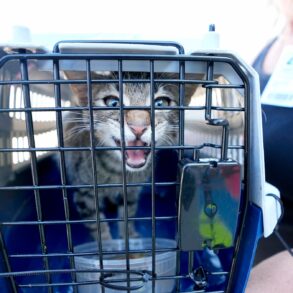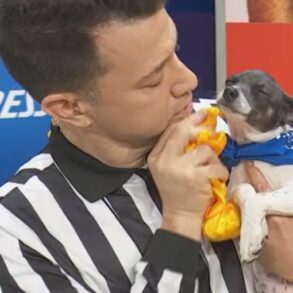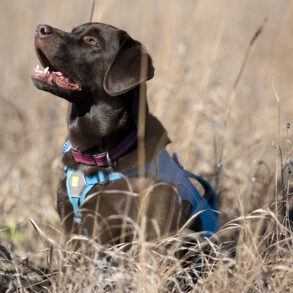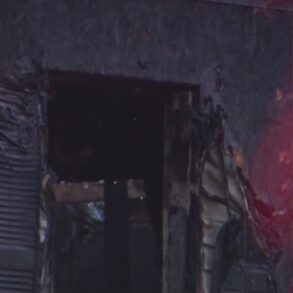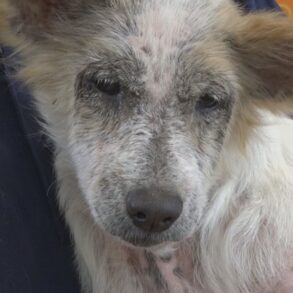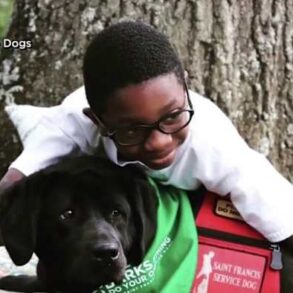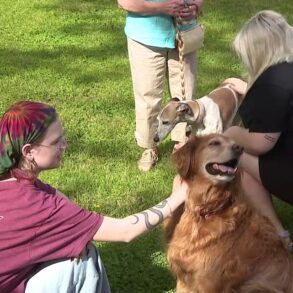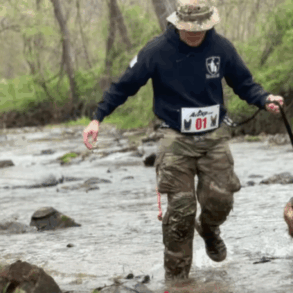
The New South Wales police force knew drug detection dogs only have a “30% hit-rate” but continued to use them as the primary justification to strip-search people at music festivals, a court has heard.
The revelation came amid closing arguments for a class action in the NSW supreme court, where lawyers for the plaintiffs have argued the vast majority of strip-searches conducted by state police between 2018 and 2022 at music festivals were unlawful.
The class action was brought by Slater and Gordon Lawyers and the Redfern Legal Centre against the state of NSW over allegedly unlawful strip-searches conducted by police, including of children.
‘Not one records why it was necessary’
Last week, the court heard from Raya Meredith, the lead plaintiff of more than 3,000 group members subjected to potentially unlawful strip-searches at music festivals by NSW police officers between 2016 and 2022.
She gave emotional testimony about her strip-search by police at the 2018 Splendour in the Grass after a drug dog sniffed in her direction but then walked on.
During the search, Meredith – 27 at the time – was asked to remove her tampon while undressed in front of a police officer. The search found no drugs, and nothing else illegal.
“The female police officer ran her hands over the plaintiff’s bare skin on her arms, up her thighs, and down her legs,” Kylie Nomchong SC, who is acting for the plaintiffs, told the court on Tuesday.
Nomchong told the court in her closing argument that Meredith’s case was not in isolation. At the 2018 Splendour in the Grass, 205 people were strip-searched but did not appear to meet the police’s threshold to merit this.
“Not one records why it was necessary, not one single [incident in the police database] records the circumstance that made it sufficiently serious or urgent to conduct a strip-search. Not one,” Nomchong told the court.
The Law Enforcement (Powers and Responsibilities) Act 2002, which dictates police strip-search powers, insists police can only carry them out when “the seriousness and urgency of the circumstances make the strip-search necessary”.
The court heard that the police undertook 155 out of those 205 searches on the basis that the festival was a “well-known place” for drugs, the person “looked nervous” in police presence, and the dog had sniffed in the person’s direction. No drugs were found on those people.
Nomchong argued these instances did not meet the threshold under the legislation, and reminded the court that police documents show that drug dogs are only accurate 30% of the time.
“That was something the police service knew yet we saw COPS event after COPS event,” she said, referring to the Computerised Operational Policing System database, “where the only indication for the event was drug dog indication.”
In instances where drugs were found at the 2018 Splendour in the Grass, Nomchong said most festival-goers handed them over after being asked by police if they had any, making a strip-search unnecessary.
In one instance, a man told police when asked if he had any drugs that he had “some joints” taped to his leg. They still conducted a strip-search and found nothing else.
‘Same input, same result’
Nomchong argued part of the broader failing was due to NSW police considering strip-searches as merely “routine”.
after newsletter promotion
Nomchong also argued that police had received “absolutely negligible” training in conducting a lawful strip-search, both in the academy and as part of ongoing mandatory training.
She argued this was a statewide issue.
“[This] didn’t just happen during the Splendour in the Grass event, it’s happening across the state in relation to all of the music and festivals,” Nomchong told the court.
“Same input, same result.”
Nomchong told the court that internal police documents showed police were aware of an increase in strip-searches at music festivals – and alongside it, an increase in complaints and litigation. But the force “did nothing”, she said.
“Police officers and indeed upper echelons of the police force must have been aware or should have been aware the level of basic training was absolutely negligible,” she told the court.
The NSW police admitted in court documents that its strip-search of Meredith was unlawful and unjustified, and ignored laws protecting her rights.
This came, the court heard, after the police had denied Meredith’s allegations that her strip-search was unlawful for two-and-a-half years.
The case had been set down for 20 days of hearings before Justice Dina Yehia SC. But in the days before the hearing began, the state of NSW withdrew 22 witnesses, mostly police officers, who were due to contest Meredith’s version of events.
Nomchong told the court on Tuesday that the damages awarded to Meredith should be substantial because “this wasn’t just one thing”.
“It was the combination of a colossal contravention of the legislation.”
Nomchong also urged the judge to factor in the police’s extended denial of Meredith’s version of events, only to eventually admit she had been illegally strip-searched.
Closing arguments before Yehia were expected to end Wednesday.
This post was originally published on this site be sure to check out more of their content.








